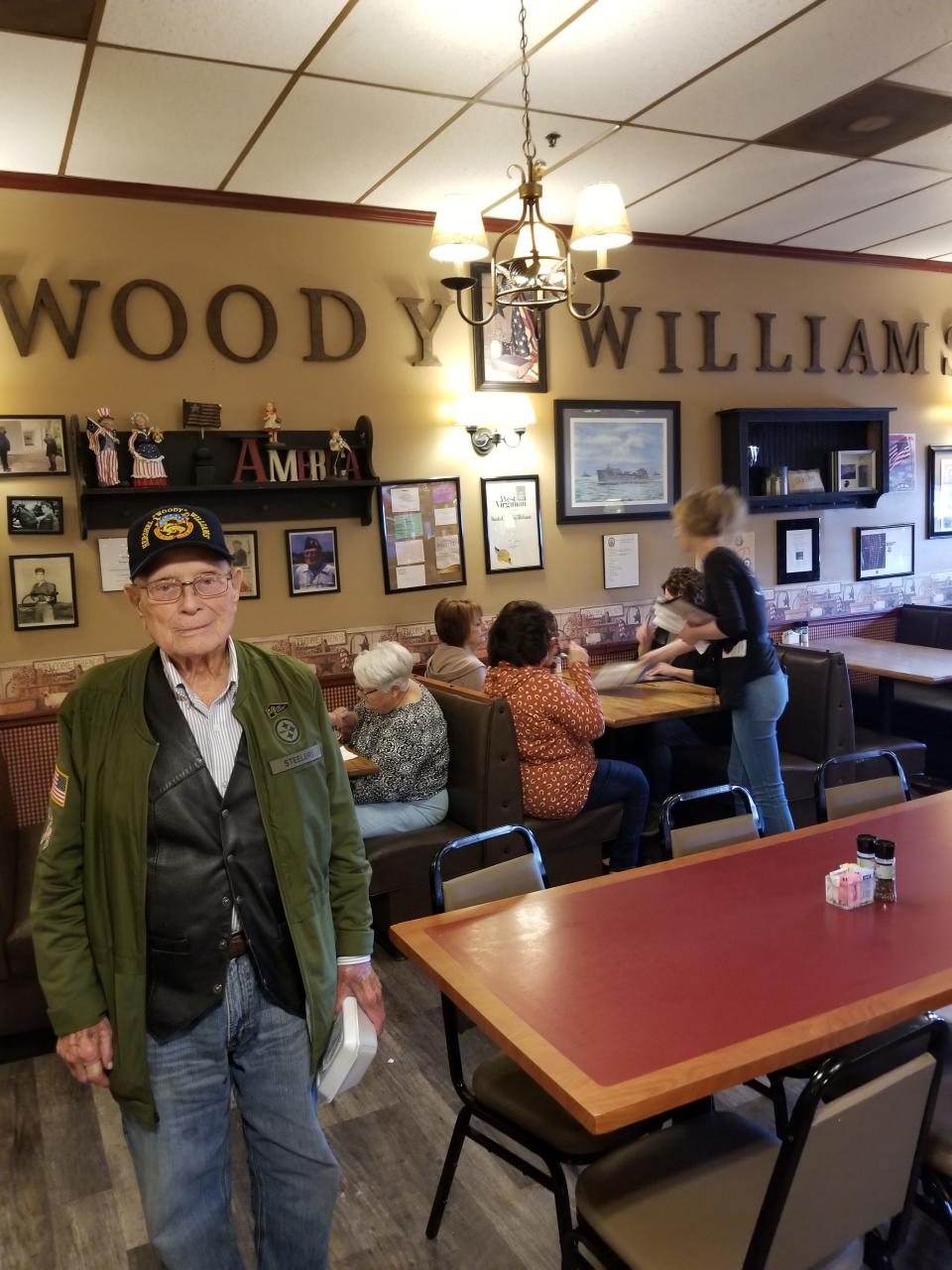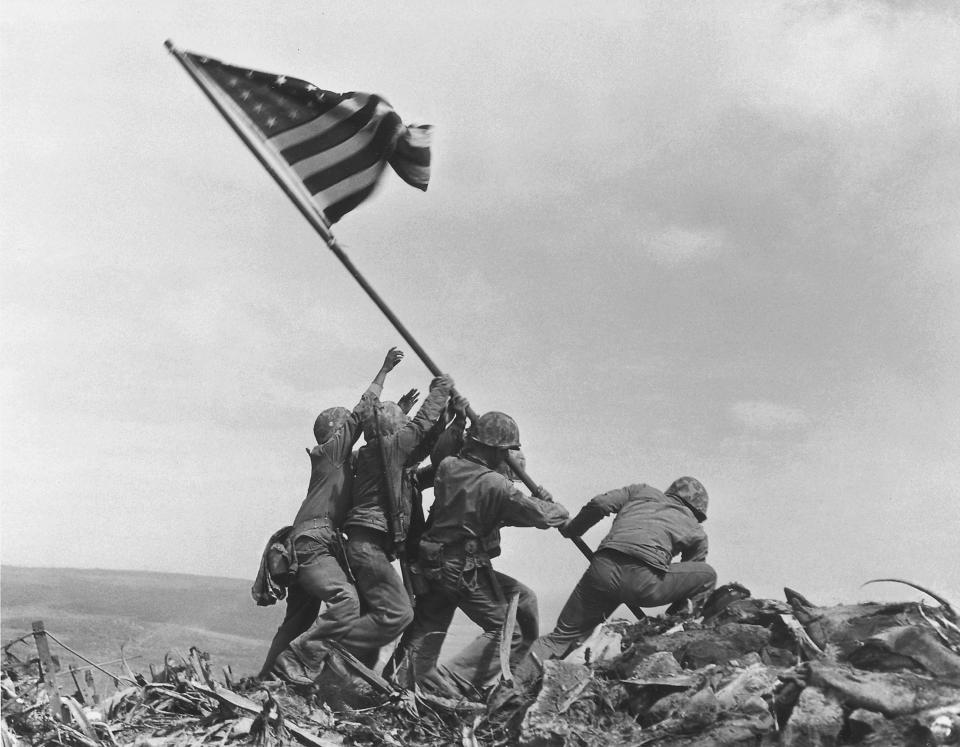World War II Medal of Honor recipient Woody Williams reflects on his service| Opinion
It’s a tale of a boy and a giant.
No, not David and Goliath. This is the story of a corporal’s reckless heroism that pierced a Japanese general's plan to kill countless Marines.
Yet, the soldier's gallantry almost never happened.
In 1942, a recruiter told 18-year-old Hershel “Woody" Williams, standing 5'6" tall, “Go home, you’re too short.” But, fortunately, the requirement changed.
In mid 1943, Williams boarded a train in Charleston, West Virginia, bound for San Diego, California. By November of 1943, after completing training, Williams was on a ship headed for the Pacific. He landed on U.S. controlled Guadalcanal in June, 1944.
Did he know the war had ended in Europe?
“We didn’t even know what was happening in the Pacific. News was very restricted.”
Hear more Tennessee Voices: Get the weekly opinion newsletter for insightful and thought provoking columns.
'We had no intelligence ... there was no cover'

Williams became a flame-thrower operator and joined the Guam campaign, where he remained until February, 1945.
According to the USMC Museum, Iwo Jima was barely 10 square miles in area and had sustained months of bombardment from air and sea.
“We had no intelligence,” Williams said. “It was supposed to be a couple of days. But General Tadamichi Kuribayashi had been educated in the U.S. and knew our tactics. The other islands had set up defenses in the water. Kuribayashi’s plan was to let the Marines come ashore where they couldn’t escape.”
Japanese troops killed or wounded nearly 2,500 Marines as they hit the beach, Feb. 19 and 20. When Williams went ashore Feb. 21, the sight of Marine bodies wrapped in their ponchos, stacked along the beach, moved him deeply.
“We climbed through the bodies and the wreckage of destroyed tanks and equipment, finding ourselves facing an airfield. There was no cover from the line of pillboxes on the other side. Made of concrete and reinforced with steel, not even tanks could take them out. All we had for protection was the bomb craters from planes shelling the island.”
Sign up for Latino Tennessee Voices newsletter: Read compelling stories for and with the Latino community in Tennessee.
Sign up for Black Tennessee Voices newsletter: Read compelling columns by Black writers from across Tennessee.
How Marines took control of Iwo Jima
On the morning of Feb. 23, the famous Iwo Jima flag went up, but the Marines had hardly begun to take the island. That afternoon, Williams was summoned to a meeting in a large bomb crater with his commander.
“He asked me if I could do anything using the flame thrower.”
Williams chose four Marines to provide cover. “Seventy pounds on my back,” he said. “Three iron tanks, two carrying fuel and one with nitrogen.”

The flames shot out from his torch for 25 yards. Williams lost two of his Marines but kept going. Bullets bounced off his tanks as he crawled forward, realizing that the closer he got, the harder it was for the gunners to hit him. He needed to get within 20 yards to direct the fire through the artillery grate and into the pillbox.
On average, Williams took out one pillbox every 33 minutes for a total of seven in four hours, even though he had to crawl back for new tanks.
His unit now had an opening to pierce Kuribayashi’s defense.
Five weeks later, the Marines controlled Iwo Jima. On October 5, 1945, Hershel “Woody” Williams received the Medal of Honor from Harry Truman, and subsequently a Navy ship was named in his honor.
Faith transformed Williams' life
In Scripture, the boy who took the giant lived a life devoted to God. Not Williams. “I was too tough.”
But Williams found himself in church one Easter Sunday, after his two young daughters begged him to join them. “I sat on the aisle, ready to get up and leave.”
When the preacher spoke of Christ sacrificing His life, Williams did get up. But he went forward, asking the minister for prayer. “I knew about sacrifice. I’d not been able to forgive myself for those two Marines who’d sacrificed their lives for me. Now, I finally could.”
On Veterans Day and beyond, thank a soldier for serving. And remember those who gave their lives for this nation. Freedom isn’t free.
Hershel “Woody" Williams receives mail at his Foundation: Contact@WoodyWilliams.org.
The Rev. R.A. Mathews (B.A., M.Div., J.D.) is a faith columnist, seminary graduate, and the author of “Reaching to God.” Contact her at Hello@RAMathews.com.
This article originally appeared on Nashville Tennessean: Medal of Honor recipient Woody Williams reflects on service

